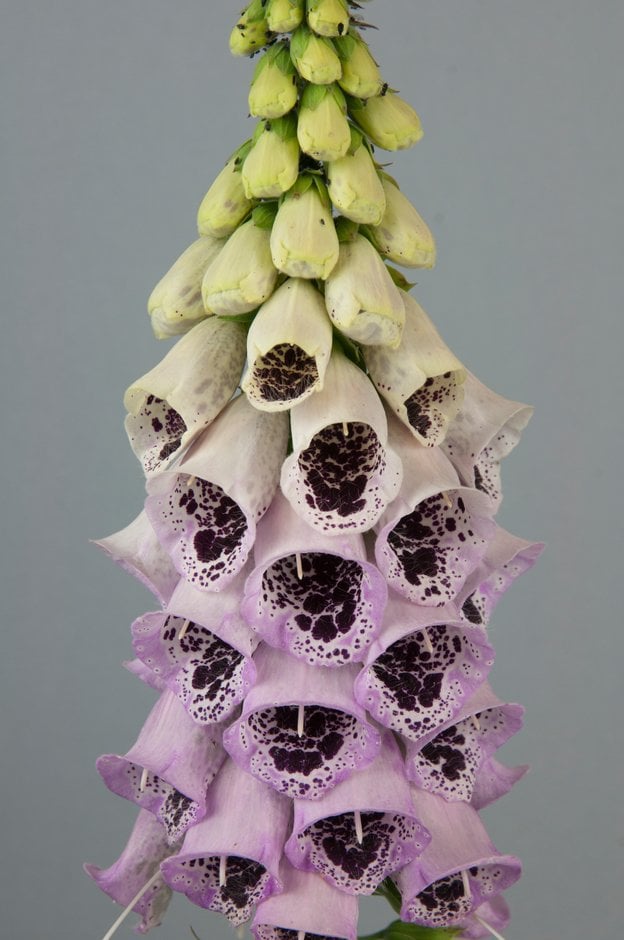Digitalis purpurea 'Pam's Choice'

foxglove 'Pam's Choice'
'Pam's Choice' is a biennial producing a basal rosette of overwintering leaves. The flower spikes, produced in summer, consist of white bells heavily-marked inside with deep red-purple
Size
Ultimate height
1–1.5 metresTime to ultimate height
1–2 yearsUltimate spread
0.1–0.5 metresGrowing conditions
Moisture
Moist but well–drained, Well–drainedpH
Acid, Alkaline, NeutralColour & scent
| Stem | Flower | Foliage | Fruit | |
| Spring | Green | |||
|---|---|---|---|---|
| Summer | Purple White | Green | ||
| Autumn | Green | |||
| Winter | Green |
Position
- Full sun
- Partial shade
Aspect
South–facing or West–facing or East–facing
Exposure
Exposed or Sheltered Hardiness
H7Botanical details
- Family
- Plantaginaceae
- Native to GB / Ireland
- No
- Foliage
- Semi evergreen
- Habit
- Bushy
- Potentially harmful
- TOXIC if eaten. Wear gloves and other protective equipment when handling TOXIC to pets - see the HTA guide to potentially harmful plants for further information and useful contact numbers
- Genus
Digitalis can be biennials or usually short-lived perennials forming a rosette of simple leaves with bell-shaped flowers in slender, erect, usually one-sided racemes
- Name status
Accepted
How to grow
Cultivation
Grow in almost any soil, but avoid very wet or very dry situations. Prefers a humus-rich soil in partial shade but will grow in full sun. See foxglove cultivation for further advice
Propagation
Propagate by seed sown in-situ in late spring. Alternatively sow in seed trays in late spring and plant out to final position in late summer
Suggested planting locations and garden types
- City and courtyard gardens
- Cottage and informal garden
- Coastal
- Wildlife gardens
- Flower borders and beds
- Wall side borders
Pruning
Cut back after flowering
Pests
May be susceptible to aphids and leaf and bud eelworm
Diseases
May be susceptible to powdery mildews, downy mildews and leaf spot
Love gardening
Sign up to receive regular gardening tips, inspiration, offers and more
View our Privacy Policy
Get involved
The Royal Horticultural Society is the UK’s leading gardening charity. We aim to enrich everyone’s life through plants, and make the UK a greener and more beautiful place.
